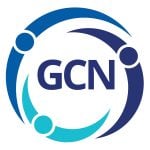The August 2020 unemployment rate dropped to 8.4%, but it’s still more than double our pre-pandemic rates from earlier this year. If you’re out of work and struggling to find a new position, you’re in an employer’s market, with the competition being high.
How you approach your job search can be as individualistic as you would like. Some people apply for hundreds of jobs blindly and hope that their hard work in getting past the applicant tracking system (ATS) will be the special sauce that will win them the prize.
Even though estimates are that only about 5% (and that’s the high end of the scale) of online applicants land a job, people keep pouring their time and resources into doing what they know.
Before spending time and energy on a job approach, what is your plan to make it through being unemployed?
Showing up at a computer and staring at a blank screen isn’t a plan. Nor is using a scattershot approach of applying for dozens of jobs online.
Stop a moment and take time to build your foundation. Your mindset and how you approach your job search is key to your success.
Back during the Vietnam War, James Stockdale survived torture and imprisonment as a prisoner of war. When asked how he survived, while others did not, he gave this explanation: “You must never confuse faith that you will prevail in the end—which you can never afford to lose —with the discipline to confront the most brutal facts of your current reality, whatever they might be.”
He went on to share that those fellow prisoners who hoped to be “home by Christmas” would put all their faith into the date, but when Christmas came and went, they “died of a broken heart.”
For Stockdale, he knew that he wouldn’t be home by Christmas, but that he would survive and eventually be freed.
What does Stockdale’s story have to do with a job search?
We are currently in a pandemic with high unemployment rates, a once-in-a-lifetime Presidential election, and a reckoning in the United States on social justice. No one can adequately predict what the next year will bring for our country (or the world). And although a job search does not in the least compare to Stockdale’s harrowing story of torture and imprisonment, we can still learn from him and apply what he taught to overcome a crisis.
The brutal fact is that we won’t have all our economic, social justice, and pandemic-related problems solved by Christmas. However, we can have hope that eventually, the country will stabilize.
To make this more personal: you may not have a job for the next five months, but eventually, you will land a new job.
Understanding the Stockdale Paradox will help you prevail.
Once you come to terms with the challenges ahead, you then need to create your plan.
Your new work is to find employment, and how you do that is up to you.
A quick search online will net you the top ways to find a job. There’s no secret in the ways to find a job; however, perseverance and resourcefulness are a whole different matter.
Just as a financial advisor will recommend a diversified approach to invest, the same is true for your job search.
Talk to people, network, and reach out to other professionals and ask for a 15-minute informational interview call. And when that doesn’t work, consider alternative ways of finding a job.
Finding a job will take time, patience, and a lot of work. The more irons you have in the fire, the better.
If you’re struggling on where to start, here are some daily recommendations to repeat each and every day:
● On your first day out of work, make a post for LinkedIn that lets your connections know that you are out of work. List a few of your last job achievements and share with everyone what you’re looking for in your next position. After day 1, share a tip or article to help others in their job search. Make sure that you use hashtags to get more eyeballs on your posts.
● Meditate. Seriously. Make time to settle your mind. If you wanted to run a marathon, you would need a training plan; the same is true of your mind.
● Each day reach out to 1-2 LinkedIn connections and let them know that you’re looking for work, would appreciate any recommendations of people to speak with to help you find a job and let them know that you will gladly help others in return.
● Exercise. Walk, run, do something to get your body moving. If getting up is a challenge, practice chair exercises.
● Set up daily job search alerts, review the listings, and apply for relevant jobs (after seeing anyone in your network works at the company).
● Read books to learn something new in your field and/or listen to podcasts (and then share this information on LinkedIn).
● Attend online professional networking sessions/webinars. The Great Careers Network & BENG has dozens of thought-provoking webinars. Sign up for one, meet new people, and connect with everyone on LinkedIn.
The list above is only a high-level overview and is simply a recommendation. Once you settle on what works for you, write the list up on a whiteboard, and after you complete them each day, check them off.
The most critical tip to help you find your next job is a deceptively simple one: Be open-minded.
Schedule one-on-one calls or Zooms with people you met in a webinar, consider opportunities that you might not have thought of in the past, and talk to as many people as you can. The more people you connect with, the more chances you’ll have in finding an opportunity.
Most of the time, jobs won’t fall into your lap, but if you are persistent and willing to talk with people, an opportunity will eventually present itself to you. The secret isn’t really much of one: Be persistent, helpful, and positive.
Remember, you make your own luck.
Author Bio
Ron Vitale is an accomplished director of digital project management and has successfully overseen the launch of more than a dozen websites and is currently seeking employment opportunities.
His colleagues have come to know him as a diplomatic problem-solver with a proven ability to envision people’s web needs and then launch viable new web-based systems on time and under budget.
Ron is also the author of more than 15 fiction and non-fiction books and uses his author career as a platform to learn new technology and online marketing techniques. Feel free to connect with him on LinkedIn.




